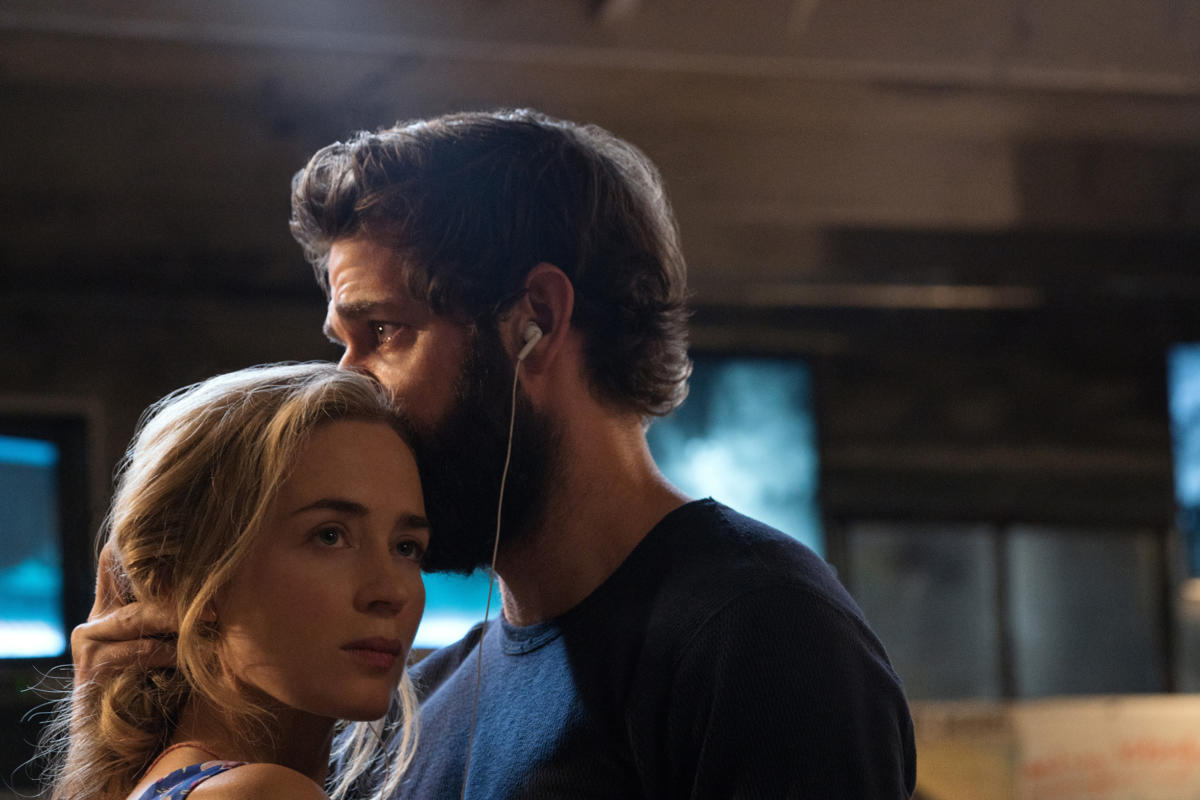Once my heartbeat had lowered to a human level and the credits had begun to roll on A Quiet Place, I turned to my partner and we both did a little clap. I’d been waiting to catch it on VOD for ages; my local cinema only just about getting the rights to show The Phantom Menace. I was not disappointed.
My partner then asked if it would be getting a sequel. I, somewhat incredulously and arrogantly, told her no and laughed it off. It was plain to see that this was a contained story, one that didn’t need to be spun off into a franchise and bloated beyond its simple and captivating premise.
I was surprised, then, to discover that Paramount had in fact already commissioned a sequel for Josh Krasinski’s A Quiet Place off the back of it being a box office success on a smaller budget. It shouldn’t have really been a shock: Hollywood have a habit of chasing the money trail, not allowing an ellipsis to naturally end.
A Quiet Place is an insular movie in the cinematic landscape, one that has lore and backstory but doesn’t shout about it. It has its own universe, but one that’s refreshingly not overexposed or over-explained. To do so would have been to dilute its message and take away from its core, which is an intimate look at a family struggling to survive in a post-apocalypse where creatures hunt by sound.
The family dynamic is what keeps A Quiet Place fresh throughout its brisk ninety-minute runtime; the perfect length. Krasinki’s patriarch is haunted by what he believes are past mistakes, and so too is Emily Blunt’s matriarch. The children, meanwhile, consist of an unsure young boy who is mostly naive to the dangers of the outside world and a girl who is deaf, leaving her at an even bigger disadvantage.
Without this dynamic to latch on to, it’s hard to envisage how A Quiet Place would really work. Without wanting to go into spoiler territory, the climax of the movie suggests a way forward for future instalments, but not one that would retain the constant tension that made it so unbearable and also enjoyable at the same time.
In many ways, A Quiet Place reminds me of Monsters: another disparate horror movie that does things differently. It, too, had a sequel, but one that completely abandoned what made so many gravitate towards the remarkably low-budget success story. The studio saw the opportunity to rake some more money in with Monsters: Dark Continent but just created yet another action movie.
I’m worried the same fate will befall A Quiet Place 2 (or A Quieter Place or whatever inane name they go for). The original works so well because of how fresh it felt, how it didn’t follow conventions. Almost every notably “low-key” box office success has been spun out beyond convolution in recent years. You only need to look at the Saw and Paranormal Activity movies to see how Hollywood loves to beat A Good Idea into the ground.
There’s one last simple reason why A Quiet Place doesn’t need a sequel: there’s nothing wrong with ending things on a question mark. Far too often do modern movies try to explain everything and tie things up in a neat bow, leaving no room for the imagination. A Quiet Place deserves better than to have all of its blanks filled in and to become yet another franchise on the factory line.
READ NEXT: The Best Modern Horror Movies
Some of the coverage you find on Cultured Vultures contains affiliate links, which provide us with small commissions based on purchases made from visiting our site. We cover gaming news, movie reviews, wrestling and much more.



